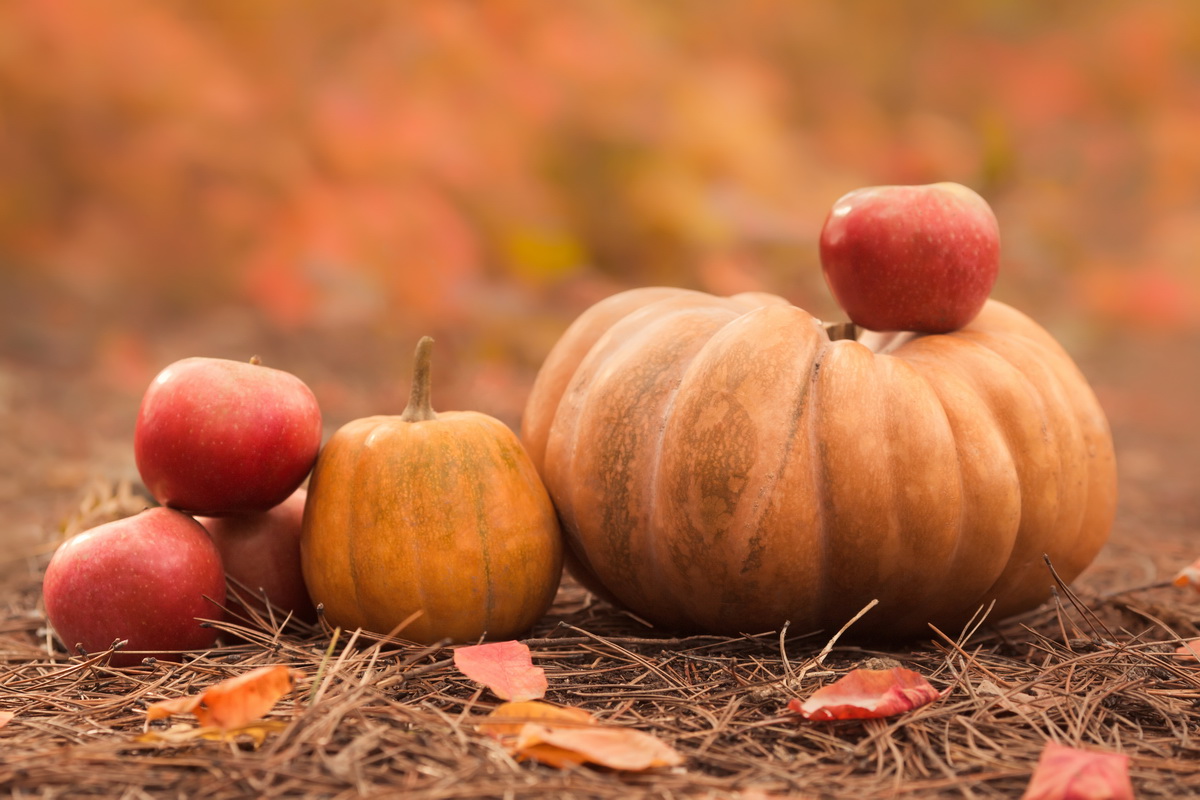
Studies Show How Microbiome Affects Breeding of Apples and Oil Pumpkins
April 21, 2021| |
Two independent studies conducted by researchers from Graz University (TU Graz) found that the composition of microbiome of apples and oil pumpkins depends on its geographical location which can affect its fruit quality, adaptability, storability, and food safety to human health.
The researchers used high-throughput amplicon sequencing to target the 16SrRNA and the TS1 genes to assess the bacterial and fungal microbiomes in oil pumpkins. They found that the plant passes on much of its microorganisms on the seed from up to 60 percent to the next generation similar to how humans get their microbiomes from their mothers. Fungal microbiome diversity, on the other hand, depends mostly on the fungi present on the soil. The results of the study could lead to a microbiome-controlled breeding of oil pumpkins resulting in high yield and longer storage life.
TU Graz researchers collected apple fruit "Royal Gala" from similar climates, within the continent, and exhibited the highest degree of similarities in its composition. They found out that fungal diversity is more noticeable than the bacterial community in terms of composition and abundance. They identified six fungal genera (Aureobasidium, Cladosporium, Alternaria, Filobasidium, Vishniacozyma, and Sporobolomyces) and two bacterial genera (Sphingomonas and Methylobacterium) in the core microbiome of the apple. Studying the core microbiome could help the researchers learn more about the susceptibility of apple fruits to pre- and postharvest diseases, fruit safety, and shelf life.
To learn more about these studies, read the journal articles in Frontiers in Plant Science and Environmental Microbiology
| |
You might also like:
- 2nd Microbiome R&D and Business Collaboration Congress: Asia
- Scientists to Harness Plant Microbiome to Improve Food Supply
- Soil Microbiomes Can Set Plant Flowering Time
Biotech Updates is a weekly newsletter of ISAAA, a not-for-profit organization. It is distributed for free to over 22,000 subscribers worldwide to inform them about the key developments in biosciences, especially in biotechnology. Your support will help us in our mission to feed the world with knowledge. You can help by donating as little as $10.
-
See more articles:
-
News from Around the World
- Researchers Identify Factors Affecting Critical Thinking toward GM Foods
- Brazil Approves Oxitec's Friendly™ Technology Against Fall Armyworm
- Multi-Institutional Effort Produces Comprehensive Guide for Communicating Plant Science
- Indian Farmers Lose Opportunity to Benefit from Bt Brinjal as GEAC Halts Field Trials
- JIC Study Reveals Genes that Control Growth Habit in Plants
- EFSA Report Says 98% of Pesticide Residues in Food in the EU within Legal Limits
-
Research Highlights
- Studies Show How Microbiome Affects Breeding of Apples and Oil Pumpkins
- Researchers Present Improved Direct PCR-based Technology for GE Plants Screening
- Success of Bt Brinjal in Bangladesh Opens Possibility for Two New Eggplant Varieties
-
Plant
- Scientists Develop Gene-Edited Mosquito to Help Eliminate Malaria
- Global Gene Editing Tools Market to Continue Excellent Growth
-
Health
- Experts Release Guidance on How to Communicate about COVID-19 Vaccine Efficacy
-
Read the latest: - Biotech Updates (November 12, 2025)
- Gene Editing Supplement (October 29, 2025)
- Gene Drive Supplement (February 22, 2023)
-
Subscribe to BU: - Share
- Tweet

